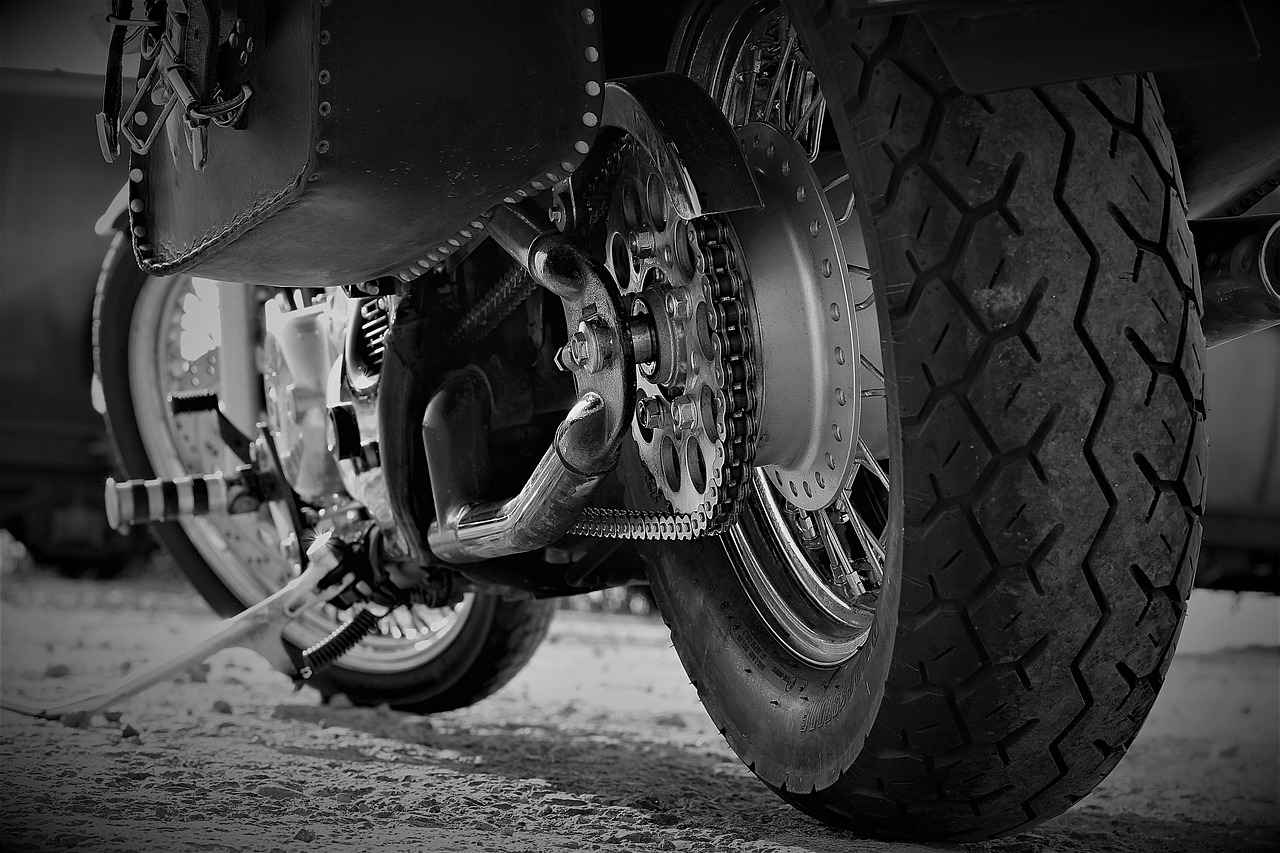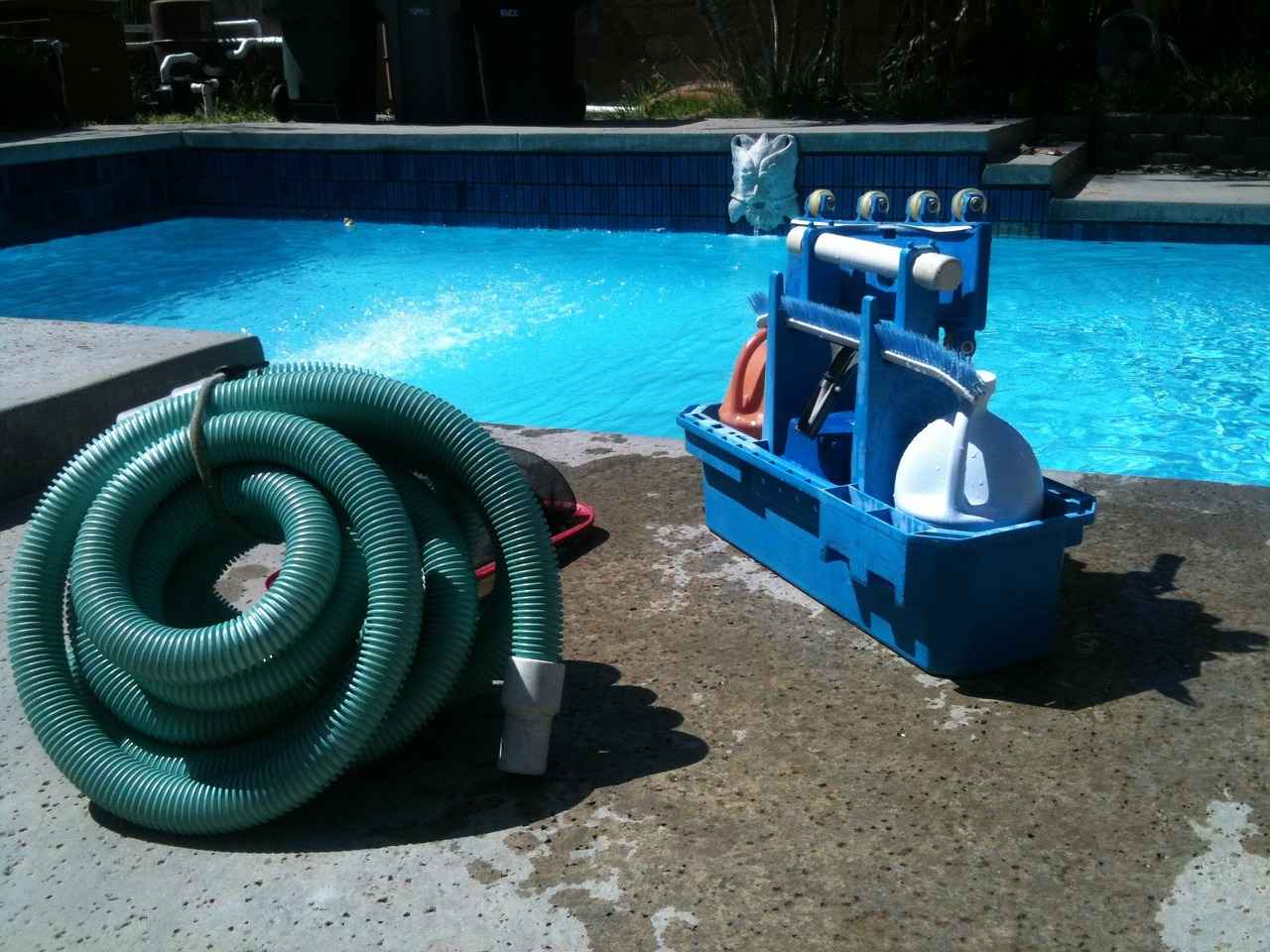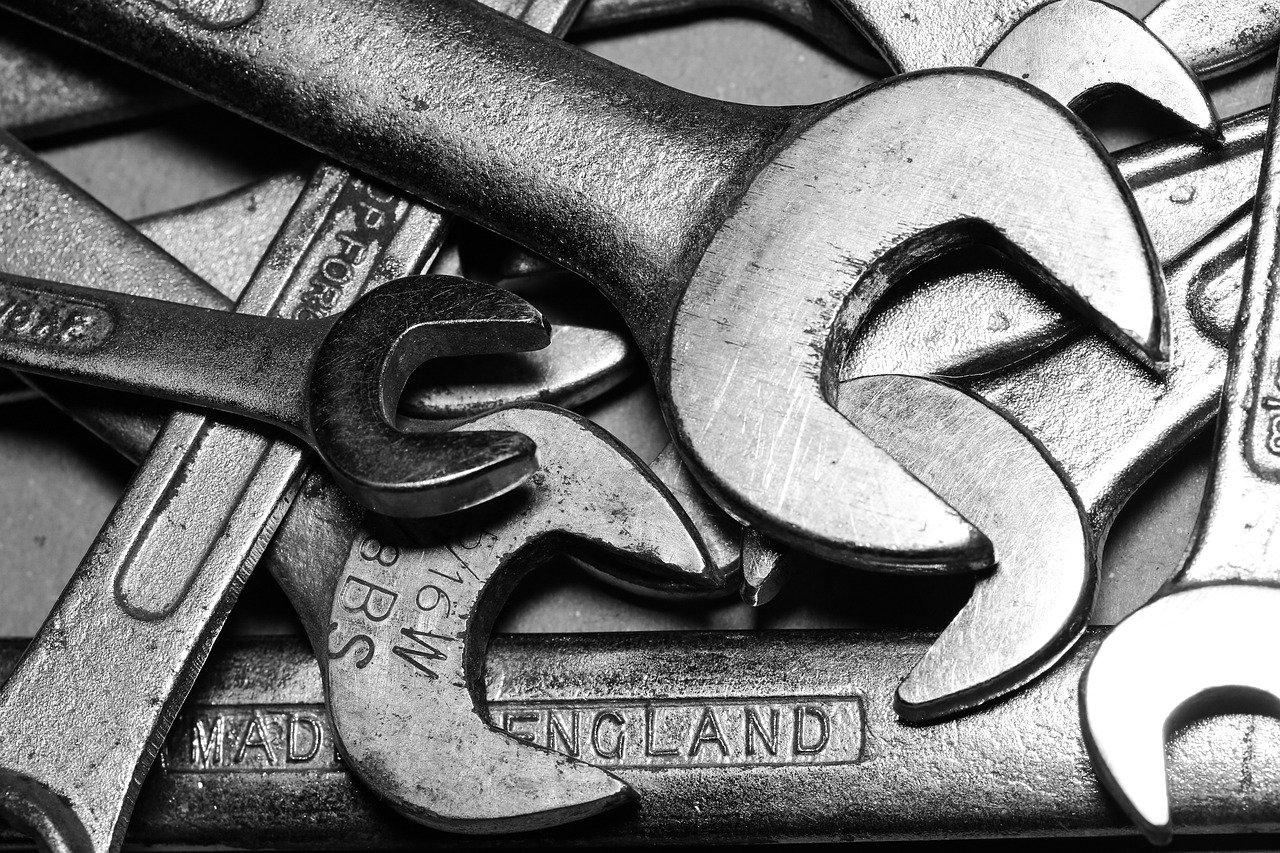The Honda Accord is a vehicle renowned for its durability and reliability. Many potential buyers often ask, “How long will a Honda Accord last?” This article delves into the longevity of the Honda Accord, examining the factors that influence its lifespan, offering maintenance tips, and sharing expert insights to help both prospective buyers and current owners understand what to expect from this popular vehicle.
The average lifespan of a Honda Accord typically ranges from 200,000 to 300,000 miles with proper maintenance. Many owners report their vehicles lasting well beyond this threshold, thanks to Honda’s engineering excellence.
Several elements can significantly impact how long a Honda Accord lasts, including:
- Driving Habits: Gentle driving can enhance longevity, while aggressive driving can lead to accelerated wear and tear.
- Maintenance Schedules: Adhering to a consistent maintenance routine is crucial for extending the life of the vehicle.
- Environmental Conditions: Driving in harsh climates can affect various components of the car.
Proper maintenance practices can significantly enhance the lifespan of your Honda Accord. Here are essential tips to keep your vehicle running smoothly:
- Regular Oil Changes: Changing the oil every 5,000 to 7,500 miles is vital for engine health and can prevent costly repairs down the line.
- Tire Care and Rotation: Maintaining proper tire pressure and rotating your tires every 6,000 to 8,000 miles can improve fuel efficiency and extend tire life.
- Brake Inspections: Regular brake checks can help identify issues early, preventing more severe problems.
While Honda Accords are known for their reliability, some common issues may arise:
- Transmission Problems: Regular checks and fluid changes can help prevent major transmission issues.
- Electrical System Failures: Although less common, electrical problems may require immediate attention to avoid complications.
Automotive experts often praise the Honda Accord for its reliability and longevity. Insights from industry professionals can provide valuable perspectives:
- Consumer Reports Ratings: The Honda Accord consistently ranks high in reliability, indicating it is a sound investment for long-term use.
- Mechanic Recommendations: Many mechanics suggest specific maintenance practices tailored for the Honda Accord to ensure it remains in optimal condition.
When comparing the Honda Accord’s longevity with other vehicles, it stands out in its class:
- Honda Accord vs. Toyota Camry: Both vehicles are reliable, but the Accord often edges out in terms of overall longevity with proper maintenance.
- Honda Accord vs. Ford Fusion: The Ford Fusion may offer different features, but the Honda Accord typically has a longer lifespan, making it a preferred choice for many drivers.
In conclusion, understanding the longevity of the Honda Accord involves recognizing the factors that influence its lifespan and adhering to proper maintenance practices. By doing so, owners can enjoy many years and miles of dependable service from this exceptional vehicle.

What is the Average Lifespan of a Honda Accord?
The Honda Accord is a renowned vehicle that has earned a reputation for its durability and reliability. Many owners take pride in their Accords, often reporting that their vehicles can last well beyond the average lifespan of typical cars. So, what is the average lifespan of a Honda Accord? With proper maintenance and care, it is not uncommon for a Honda Accord to exceed 200,000 miles or more. This impressive longevity can be attributed to a combination of factors, including the quality of engineering, robust parts, and the commitment of owners to maintain their vehicles.
Several key factors can significantly impact how long a Honda Accord will last:
- Driving Habits: Gentle driving, adherence to speed limits, and avoiding aggressive acceleration can help reduce wear and tear on the vehicle.
- Maintenance Schedules: Following the manufacturer’s recommended maintenance schedule is crucial. Regular oil changes, brake inspections, and fluid replacements can prevent major issues.
- Environmental Conditions: Vehicles driven in harsher climates may experience more wear. Factors such as extreme temperatures, humidity, and exposure to road salt can affect the lifespan of the vehicle.
To ensure your Honda Accord remains in optimal condition, consider the following maintenance tips:
- Regular Oil Changes: Changing the oil every 5,000 to 7,500 miles is essential for engine health. Clean oil lubricates engine components, reducing friction and preventing overheating.
- Tire Care: Regularly check tire pressure and rotate tires every 5,000 to 7,500 miles. Properly inflated and rotated tires improve fuel efficiency and enhance safety.
- Brake Maintenance: Inspect brake pads and rotors regularly. Replacing worn-out brakes promptly can prevent further damage to the braking system.
While Honda Accords are generally reliable, some common issues can arise:
- Transmission Problems: Issues with the transmission can lead to costly repairs. Regular fluid checks and changes can help mitigate these risks.
- Electrical System Failures: Although rare, electrical problems can occur. Timely diagnosis and repair of electrical issues are crucial to avoid more extensive damage.
Automotive experts consistently praise the Honda Accord for its longevity. According to Consumer Reports, the Accord ranks highly in reliability, making it a smart investment for those seeking a long-lasting vehicle. Mechanics often recommend specific practices tailored to the Accord, emphasizing the importance of routine checks and preventative maintenance.
When comparing the Honda Accord to other vehicles in its class, it often stands out:
- Honda Accord vs. Toyota Camry: Both vehicles are known for their reliability. However, many Accord owners report longer lifespans with proper care.
- Honda Accord vs. Ford Fusion: While the Ford Fusion offers various features, the Honda Accord generally has a better track record for longevity, making it a preferred choice for many drivers.
In summary, the Honda Accord’s average lifespan can reach impressive milestones with the right care and attention. By understanding the factors that influence longevity and adhering to maintenance best practices, owners can enjoy their vehicles for many years to come.

What Factors Influence the Longevity of a Honda Accord?
The longevity of a Honda Accord is a topic of interest for many car owners and potential buyers alike. Understanding the factors that influence how long this popular vehicle lasts can help owners make informed decisions regarding maintenance and driving habits. In this section, we will delve into the various elements that can significantly impact the lifespan of a Honda Accord.
Several key factors play a crucial role in determining the lifespan of a Honda Accord. These include:
- Driving Habits: The way you drive can have a significant impact on your vehicle’s longevity. Aggressive driving, which includes rapid acceleration, hard braking, and high-speed driving, can lead to increased wear and tear on your Accord. In contrast, gentle driving habits can help maintain the vehicle’s condition for a more extended period.
- Maintenance Schedules: Regular maintenance is vital for any vehicle, and the Honda Accord is no exception. Following the manufacturer’s recommended maintenance schedule can prevent issues before they arise. This includes regular oil changes, brake inspections, and fluid checks.
- Environmental Conditions: The environment in which you drive your Honda Accord can also affect its lifespan. Harsh weather conditions, such as extreme heat, cold, or humidity, can contribute to wear and tear. Additionally, driving in areas with poor road conditions may lead to increased damage to the vehicle.
- Quality of Parts Used: Using high-quality replacement parts can make a significant difference in the longevity of your Honda Accord. Opting for OEM (Original Equipment Manufacturer) parts is often recommended to ensure compatibility and reliability.
- Driving Frequency: Frequent short trips can be detrimental to your Accord’s engine, as it may not reach optimal operating temperature. This can lead to incomplete combustion and increased buildup of carbon deposits.
By understanding these factors, Honda Accord owners can take proactive steps to enhance their vehicle’s lifespan. It is essential to develop a comprehensive maintenance plan that considers these elements and to adopt driving habits that promote longevity.
To ensure your Honda Accord lasts as long as possible, consider implementing the following strategies:
- Create a Maintenance Schedule: Stick to a regular maintenance schedule that includes oil changes, tire rotations, and brake inspections.
- Drive Smoothly: Avoid aggressive driving behaviors and try to maintain a steady speed.
- Protect Against the Elements: Whenever possible, park your Accord in a garage or use a car cover to protect it from harsh weather conditions.
- Use Quality Fuel: Opt for high-quality fuel to ensure optimal engine performance.
By being proactive and attentive to these factors, Honda Accord owners can significantly enhance the longevity of their vehicles, ensuring they serve them well for many years to come.
Driving Habits and Their Impact
When it comes to the longevity of your vehicle, driving habits play a crucial role. Particularly for a popular model like the Honda Accord, understanding how your driving style influences wear and tear can significantly impact its lifespan. In this section, we will delve into how aggressive driving and frequent short trips can lead to increased wear and tear on your vehicle, ultimately affecting its longevity.
Aggressive driving is characterized by behaviors such as rapid acceleration, hard braking, and weaving through traffic. These habits can put undue stress on various components of your Honda Accord, leading to:
- Increased Engine Strain: Rapid acceleration can cause the engine to work harder than necessary, leading to quicker deterioration.
- Brake Wear: Frequent hard braking can lead to premature wear of brake pads and rotors, necessitating more frequent replacements.
- Transmission Stress: Aggressive driving can also strain the transmission, which may lead to costly repairs if not monitored.
Short trips, while often unavoidable, can be detrimental to your Honda Accord’s health. When you drive short distances, the engine may not reach optimal operating temperature, which can lead to:
- Oil Contamination: Short trips can cause oil to become contaminated more quickly, reducing its effectiveness and necessitating more frequent changes.
- Battery Drain: Frequent short trips may not allow the battery to recharge fully, leading to a shorter lifespan.
- Fuel Inefficiency: Starting and stopping frequently can decrease fuel efficiency, leading to increased costs over time.
To ensure that your Honda Accord lasts as long as possible, it is essential to adopt safe driving habits and minimize the impact of short trips. Here are some practical tips:
1. Drive Smoothly: Avoid sudden accelerations and hard braking.2. Plan Longer Trips: Whenever possible, combine errands into one longer trip to allow the engine to reach optimal temperature.3. Regular Maintenance: Adhere to the manufacturer’s maintenance schedule to address any issues early on.4. Monitor Driving Style: Consider using technology or apps that can help you track and improve your driving habits.
In conclusion, paying attention to your driving habits is vital for the longevity of your Honda Accord. By avoiding aggressive driving and being mindful of short trips, you can significantly reduce wear and tear, ultimately extending the life of your vehicle. Remember, a few changes in your driving style can lead to a more reliable and longer-lasting vehicle.
Maintenance and Service Records
are essential components in ensuring the longevity and reliability of your Honda Accord. Regular attention to your vehicle not only enhances performance but also significantly impacts its lifespan. In this section, we will explore the importance of maintenance, the types of services needed, and how to keep accurate records to ensure your Honda Accord remains in optimal condition.
Regular maintenance is crucial for any vehicle, and the Honda Accord is no exception. By adhering to a consistent maintenance schedule, owners can prevent minor issues from escalating into major problems. This proactive approach can save money in the long run and enhance the driving experience.
- Oil Changes: Frequent oil changes are vital for maintaining engine health. It is generally recommended to change the oil every 5,000 to 7,500 miles, depending on driving conditions.
- Brake Inspections: Regular brake checks ensure safety and prevent costly repairs. Inspect brake pads, rotors, and fluid levels at least twice a year.
- Fluid Checks: Regularly checking and replacing fluids such as coolant, transmission fluid, and brake fluid can prevent overheating and other serious issues.
- Tire Maintenance: Proper tire care, including rotation and alignment, can improve fuel efficiency and extend tire life. Check tire pressure monthly.
- Battery Maintenance: Inspect the battery regularly for corrosion and ensure it is securely mounted. Replace the battery as needed to avoid unexpected failures.
Maintaining a detailed record of all services performed on your Honda Accord is essential. Here are some tips for keeping accurate maintenance records:
- Create a Log: Use a notebook or digital app to record the date, mileage, and details of each service.
- Save Receipts: Keep all receipts related to maintenance and repairs. This documentation can be helpful for resale value and warranty claims.
- Set Reminders: Use calendar reminders or apps to notify you when it’s time for the next service, ensuring you never miss an important maintenance task.
While many maintenance tasks can be performed by the owner, consulting a professional mechanic is advisable for more complex issues. Mechanics familiar with the Honda Accord can provide tailored advice and services to keep your vehicle running smoothly. They can also help identify potential problems before they become serious, ensuring your car’s longevity.
Investing time and resources in regular maintenance offers numerous benefits, including:
- Enhanced Performance: A well-maintained Honda Accord will perform better, providing a smoother and more enjoyable driving experience.
- Increased Resale Value: A comprehensive maintenance record can significantly increase your vehicle’s resale value, as potential buyers often look for well-maintained cars.
- Improved Safety: Regular checks on critical systems like brakes and tires enhance overall safety, reducing the risk of accidents.
In summary, prioritizing maintenance and keeping accurate service records are vital for the longevity of your Honda Accord. By following these guidelines, you can ensure that your vehicle remains reliable and efficient for years to come.

How to Maintain Your Honda Accord for Longevity?
Maintaining your Honda Accord is crucial for ensuring its longevity and performance. With proper care, these vehicles are renowned for their durability, often exceeding 200,000 miles. Here are some essential maintenance practices that can significantly enhance the lifespan of your Honda Accord.
One of the most important maintenance tasks for your Honda Accord is regular oil changes. Oil lubricates the engine, reducing friction and wear. Over time, oil breaks down and becomes less effective, which can lead to engine damage. It is advisable to change the oil every 5,000 to 7,500 miles, depending on your driving conditions and the type of oil used. Always refer to your owner’s manual for specific recommendations.
Maintaining proper tire pressure is essential for fuel efficiency and overall safety. Under-inflated tires can lead to uneven wear and reduced handling. Check tire pressure monthly and rotate your tires every 6,000 to 8,000 miles to ensure even wear. This practice can extend the life of your tires and improve your Accord’s performance.
Brakes are critical for safety, and their maintenance should not be overlooked. Regularly inspect brake pads and rotors for wear. If you notice any squeaking or grinding noises, have them checked immediately. Replacing worn-out brakes can prevent further damage to your vehicle and ensure your safety on the road.
- Transmission Fluid: Regularly check and change transmission fluid to prevent costly repairs.
- Coolant: Ensure that the coolant level is adequate to prevent overheating.
- Brake Fluid: Keep an eye on brake fluid levels and top up as necessary.
The battery is the heart of your vehicle’s electrical system. Regularly check battery terminals for corrosion and ensure a secure connection. If your battery is over three years old, consider having it tested to avoid unexpected failures.
Schedule regular inspections with a qualified mechanic to catch potential issues early. A professional can identify problems that may not be visible to the untrained eye, such as leaks or abnormal wear.
Your driving style can significantly affect the longevity of your Honda Accord. Aggressive driving can lead to increased wear and tear. To maximize your vehicle’s lifespan, practice smooth acceleration and braking, and avoid excessive idling.
Environmental factors, such as extreme temperatures and road conditions, can also impact your Accord’s lifespan. In harsh climates, consider using protective coatings and rust inhibitors to shield your vehicle from the elements.
By following these maintenance tips, you can significantly enhance the lifespan of your Honda Accord. Regular care not only ensures a smooth ride but also contributes to the vehicle’s overall reliability and resale value. Remember, a well-maintained Honda Accord is a long-lasting Honda Accord.
Regular Oil Changes
Maintaining the health of your vehicle’s engine is paramount, and one of the most critical aspects of this maintenance is performing . This simple yet essential task not only enhances the performance of your engine but also significantly extends its lifespan. In this section, we will delve deeper into why regular oil changes are vital for your vehicle, particularly focusing on the Honda Accord.
Regular oil changes are crucial for several reasons:
- Engine Lubrication: Oil serves as a lubricant for the moving parts of the engine, reducing friction and preventing wear and tear.
- Heat Dissipation: Oil helps in dissipating heat generated by the engine, which is vital for maintaining optimal operating temperatures.
- Contaminant Removal: Over time, oil accumulates dirt, debris, and other contaminants. Regular changes ensure that these impurities do not harm the engine.
- Fuel Efficiency: Clean oil improves engine efficiency, leading to better fuel economy and performance.
For the Honda Accord, it is generally recommended to change the oil every 5,000 to 7,500 miles, depending on the type of oil used and driving conditions. However, it’s essential to consult your owner’s manual for specific recommendations tailored to your model year.
Neglecting regular oil changes can lead to severe consequences:
- Engine Damage: Old oil loses its effectiveness, leading to increased friction and potential engine damage.
- Overheating: Inadequate lubrication can cause the engine to overheat, leading to costly repairs or even engine failure.
- Decreased Performance: A well-lubricated engine runs smoother and more efficiently, while neglected oil can lead to sluggish performance.
Automotive experts emphasize the importance of adhering to a regular oil change schedule. According to Consumer Reports, vehicles like the Honda Accord can greatly benefit from consistent maintenance practices, including timely oil changes. Mechanics often recommend using high-quality synthetic oil for better performance and longer intervals between changes.
To ensure that your oil changes are effective, consider these practical tips:
- Check Oil Levels Regularly: Regularly inspect your oil levels and quality to catch any issues early.
- Choose the Right Oil: Always use the type of oil recommended for your Honda Accord to maintain optimal engine health.
- Keep Service Records: Maintain a log of your oil changes and other maintenance for better tracking and resale value.
In conclusion, changing the oil regularly is not just a routine task; it is a vital practice that can prevent costly repairs and ensure your Honda Accord remains in excellent condition for years to come. By prioritizing this aspect of vehicle maintenance, you are investing in the longevity and reliability of your car.
Tire Care and Rotation
Proper tire care is essential for any vehicle owner, especially for those who want to maximize the longevity and performance of their Honda Accord. One of the key aspects of tire maintenance is ensuring that your tires are at the correct pressure and are rotated regularly. This not only enhances fuel efficiency but also extends the overall lifespan of your tires, contributing to the vehicle’s longevity.
Maintaining the correct tire pressure is crucial for several reasons:
- Fuel Efficiency: Under-inflated tires create more rolling resistance, which can decrease fuel efficiency. By keeping your tires properly inflated, you can improve your mileage.
- Tire Wear: Incorrect tire pressure can lead to uneven tire wear. Over-inflated tires may wear out the center tread, while under-inflated tires can wear out the edges, necessitating early replacement.
- Safety: Properly inflated tires ensure better traction and handling, reducing the risk of accidents.
It is advisable to check your tire pressure at least once a month and before long trips. Additionally, temperature changes can affect tire pressure, so it’s essential to check it during seasonal transitions.
Tire rotation involves changing the position of the tires on your vehicle to ensure even wear. This practice can significantly extend the life of your tires. Here’s why:
- Even Wear: Different positions on your vehicle can cause tires to wear differently. Regular rotation helps distribute wear evenly across all tires.
- Improved Handling: Tires that wear evenly provide better traction and handling, enhancing your driving experience.
- Cost-Effective: By extending the lifespan of your tires, you reduce the need for frequent replacements, saving you money in the long run.
Most experts recommend rotating your tires every 5,000 to 7,500 miles. However, always refer to your Honda Accord’s owner manual for specific guidelines tailored to your vehicle.
Being proactive about tire maintenance can prevent costly repairs and enhance safety. Watch for these signs:
- Uneven Tread Wear: If you notice that one side of a tire is wearing faster than the other, it may be time for a rotation.
- Vibration or Noise: Unusual vibrations or noises while driving can indicate a problem with your tires or alignment.
- Low Tire Pressure Warning Light: If this light appears on your dashboard, check your tire pressure immediately.
In summary, maintaining proper tire pressure and adhering to a regular tire rotation schedule are critical practices for enhancing the fuel efficiency and lifespan of your Honda Accord. By investing time in tire care, you not only ensure a safer driving experience but also contribute to the overall longevity of your vehicle.

What Are Common Issues That Affect Honda Accord Lifespan?
The Honda Accord is widely recognized for its reliability and durability, making it a popular choice among drivers. However, like any vehicle, it is not immune to certain issues that can arise over time. Understanding these common problems is crucial for current owners and potential buyers alike, as they can significantly impact the lifespan of the vehicle if not addressed promptly.
While Honda Accords are designed to last, several common issues can arise, potentially reducing their longevity. Identifying these problems early can lead to timely repairs, ensuring that your Accord remains in optimal condition.
- Transmission Problems: One of the most significant concerns for Honda Accord owners is transmission issues. Symptoms may include slipping gears, delayed engagement, or unusual noises. Regular maintenance, such as fluid checks and changes, is essential to prevent these problems from escalating.
- Electrical System Failures: Although less frequent, electrical problems can occur in Honda Accords. Issues may manifest as malfunctioning lights, problems with the battery, or faulty wiring. Prompt diagnosis and repair are critical to avoiding complications that could affect other vehicle systems.
- Engine Overheating: Overheating can lead to severe engine damage if not addressed. Common causes include low coolant levels, a failing water pump, or a malfunctioning thermostat. Regularly checking fluid levels and scheduling maintenance can help prevent overheating issues.
- Brake Wear: The braking system is vital for safety, and wear can occur over time. Signs of brake issues include squeaking noises, reduced responsiveness, or vibrations. Regular inspections and timely replacements of brake pads and rotors can extend the lifespan of your Accord.
- Suspension Problems: A worn suspension can lead to a rough ride and handling issues. Symptoms may include uneven tire wear, excessive bouncing, or difficulty steering. Regular checks and maintenance of the suspension system can help maintain ride quality and safety.
- Fuel System Issues: Problems with the fuel system, such as clogged fuel injectors or a failing fuel pump, can affect engine performance and efficiency. Keeping the fuel system clean and conducting regular maintenance can help avoid these issues.
Addressing these common problems promptly can significantly impact the longevity of your Honda Accord. By staying proactive with maintenance and repairs, owners can enjoy their vehicles for many years and miles.
Preventative measures are essential for maintaining the longevity of your Honda Accord. Here are some practical tips to help you avoid common issues:
- Regular Maintenance: Following the manufacturer’s recommended maintenance schedule is crucial. This includes oil changes, fluid checks, and inspections of key systems.
- Monitor Warning Lights: Pay attention to dashboard warning lights. Ignoring these signals can lead to more severe issues down the line.
- Drive Responsibly: Gentle driving habits can reduce wear and tear on your vehicle. Avoid aggressive acceleration and sudden braking.
- Use Quality Parts: When replacing parts, opt for high-quality or OEM (Original Equipment Manufacturer) components to ensure compatibility and performance.
- Stay Informed: Join online forums or local clubs to stay updated on common issues and solutions for your specific model year.
By implementing these preventative strategies, Honda Accord owners can significantly enhance their vehicle’s lifespan and reliability.
Transmission Problems
Transmission issues can significantly impact the longevity of your Honda Accord. These problems, if left unchecked, can lead to costly repairs and a decrease in your vehicle’s performance. Understanding the importance of regular maintenance and timely interventions is crucial for any Accord owner.
The transmission is a vital component of your vehicle, responsible for transferring power from the engine to the wheels. If this system encounters problems, it can affect your car’s overall functionality. Common transmission issues include slipping gears, delayed engagement, and unusual noises. Recognizing these symptoms early can save you both time and money.
Regular checks of your transmission fluid are essential. This fluid lubricates the moving parts of the transmission, ensuring smooth operation. Over time, transmission fluid can become contaminated or degrade, leading to potential issues. It is advisable to check the fluid level and condition every few months. If the fluid appears dark or has a burnt smell, it may be time for a change.
Additionally, fluid changes should be performed according to the manufacturer’s recommendations. For the Honda Accord, this typically means replacing the transmission fluid every 30,000 to 60,000 miles, depending on your driving habits and conditions. Regular fluid changes help prevent the buildup of debris and contaminants that can wear down your transmission.
Another critical aspect of maintaining your transmission is to pay attention to driving habits. Aggressive driving, such as rapid acceleration and hard braking, can put extra strain on the transmission. Avoiding these behaviors can lead to a longer-lasting vehicle. Moreover, consider the frequency of short trips, as they can prevent your transmission from reaching optimal operating temperatures, which is necessary for the fluid to perform effectively.
Environmental factors also play a role in transmission health. Extreme temperatures, whether hot or cold, can affect fluid viscosity and performance. If you live in an area with harsh weather conditions, take extra care to monitor your transmission system. Regular inspections by a qualified mechanic can help identify potential issues before they escalate.
In conclusion, maintaining your Honda Accord’s transmission is crucial for its longevity. Regular fluid checks and changes, coupled with mindful driving habits, can significantly reduce the risk of major problems. By prioritizing these maintenance practices, you can ensure that your Accord remains reliable and efficient for many miles to come.
Electrical System Failures
Electrical issues in vehicles can often be overlooked, yet they play a crucial role in the overall functionality of your Honda Accord. While these problems are less common than mechanical issues, they can arise and may require immediate attention to prevent further complications.
Understanding the various components of the electrical system is essential for any car owner. The electrical system encompasses everything from the battery to the wiring and various electronic components. A malfunction in any part of this system can lead to significant performance issues.
- Warning Lights: Dashboard warning lights, especially those related to the battery or electrical system, should never be ignored.
- Dim or Flickering Lights: If your headlights or dashboard lights are dimming or flickering, it could indicate a failing alternator or battery.
- Starting Issues: Difficulty starting your vehicle may point to battery issues or problems with the ignition system.
- Unresponsive Electronics: If your radio, power windows, or other electronic features stop working, it may be due to electrical failures.
Several factors can lead to electrical failures in your Honda Accord:
- Aging Components: As your vehicle ages, the electrical components may wear out, leading to failures.
- Corrosion: Corrosion on battery terminals or wiring can disrupt the flow of electricity.
- Faulty Wiring: Damaged or frayed wiring can lead to short circuits and other electrical problems.
- Overloading Circuits: Adding aftermarket electrical components without proper assessment can overload the system.
If you suspect an electrical issue, it is crucial to take action quickly. Here are some steps you can follow:
- Diagnostic Tests: Use an OBD-II scanner to check for error codes that can help pinpoint the issue.
- Visual Inspection: Regularly inspect battery terminals, wiring, and fuses for any visible signs of wear or damage.
- Consult a Professional: If you are not comfortable diagnosing or fixing electrical issues, seek help from a qualified mechanic.
To minimize the risk of electrical failures, consider these preventative measures:
- Regular Maintenance: Schedule routine check-ups that include electrical system inspections.
- Battery Care: Keep battery terminals clean and ensure a secure connection.
- Quality Parts: When replacing components, use high-quality parts that are compatible with your Honda Accord.
In summary, while electrical system failures in a Honda Accord are not as frequent as mechanical issues, they can cause significant problems if not addressed promptly. By being aware of the signs, understanding the causes, and implementing preventative measures, you can ensure that your vehicle remains in optimal condition for years to come.

What Do Experts Say About Honda Accord Longevity?
The Honda Accord has long been a favorite among automotive enthusiasts and everyday drivers alike, celebrated for its reliability and impressive longevity. In this section, we delve into what industry experts have to say about the lifespan of this iconic vehicle, providing potential buyers and current owners with valuable insights.
Automotive experts consistently commend the Honda Accord for its exceptional durability. Many professionals within the industry highlight that with proper maintenance, the Accord has the potential to exceed 200,000 miles. This remarkable lifespan is not merely anecdotal; it is supported by numerous studies and consumer feedback.
- Engineering Excellence: The Accord’s engineering is designed for longevity. Components are built to withstand wear and tear, contributing to its reputation as a long-lasting vehicle.
- Quality Materials: Honda employs high-quality materials in the manufacturing process, which helps resist corrosion and other forms of deterioration.
- Consistent Maintenance: Experts emphasize that regular maintenance is key. Vehicles that receive timely oil changes, brake inspections, and other routine services are more likely to achieve extended lifespans.
Consumer Reports has consistently rated the Honda Accord among the top vehicles for reliability. According to their findings, the Accord frequently outperforms competitors in its class. This high rating is a testament to Honda’s commitment to engineering vehicles that stand the test of time.
Many automotive professionals advocate for specific maintenance practices tailored to the Honda Accord. Some of the recommended practices include:
- Regular Oil Changes: Keeping the engine well-lubricated is crucial for longevity. Experts suggest changing the oil every 5,000 to 7,500 miles, depending on driving conditions.
- Brake Inspections: Regular brake checks can prevent more severe issues down the line, ensuring safety and longevity.
- Tire Maintenance: Proper tire care, including rotation and alignment, can enhance fuel efficiency and extend the life of both tires and the vehicle.
While the Honda Accord is known for its durability, some common issues may arise that can impact its lifespan if not addressed promptly. Experts recommend being vigilant about the following:
- Transmission Maintenance: Transmission problems can be detrimental. Regular fluid checks and changes are essential to prevent major repairs.
- Electrical System Checks: Although less frequent, electrical failures can occur. Mechanics advise regular inspections to catch any potential issues early.
When comparing the Honda Accord to other vehicles, experts often highlight its superior longevity. For instance, while the Toyota Camry is also praised for reliability, many reviews indicate that the Accord tends to last longer with proper care. Similarly, when pitted against the Ford Fusion, the Honda Accord frequently emerges as the more durable option.
In summary, the consensus among automotive experts is clear: the Honda Accord is a reliable choice for those seeking a vehicle that promises longevity. With its robust engineering, quality materials, and the right maintenance practices, owners can expect their Accord to serve them well for many years to come.
Consumer Reports and Reliability Ratings
The Honda Accord has long been a favorite among consumers and automotive experts alike, particularly when it comes to reliability. Consumer Reports consistently ranks the Honda Accord among the top vehicles for reliability, which speaks volumes about its long-term value. This reputation not only makes the Accord a popular choice for new car buyers but also reinforces its status as a wise investment for those seeking a vehicle that will stand the test of time.
One of the key factors behind the Honda Accord’s high reliability ratings is its robust engineering. The vehicle is designed with quality materials and a focus on durability, which translates to fewer breakdowns and repairs over time. According to Consumer Reports, the Accord often receives high marks for its performance in various reliability surveys, which assess factors such as engine performance, transmission reliability, and the longevity of electrical systems.
For potential buyers, understanding reliability ratings is crucial. A high rating from Consumer Reports indicates that the vehicle is less likely to encounter significant issues, which can save owners both time and money in the long run. Furthermore, vehicles with strong reliability ratings tend to have higher resale values, making them a sound investment.
When comparing the Honda Accord to other vehicles in its class, such as the Toyota Camry and Ford Fusion, it becomes evident that the Accord frequently outperforms its rivals in terms of reliability. While both the Accord and Camry are known for their dependability, the Accord often edges ahead in consumer satisfaction ratings, particularly regarding maintenance costs and long-term ownership experiences.
- Regular Oil Changes: Keeping the engine oil fresh is vital for maintaining engine health.
- Tire Maintenance: Regular tire rotations and proper inflation can lead to better fuel efficiency and safety.
- Scheduled Inspections: Routine checks can catch potential issues before they become major problems.
Many automotive experts advocate for proactive maintenance practices to ensure the Honda Accord remains reliable over the years. Mechanics often suggest adhering to the manufacturer’s maintenance schedule, which includes essential services such as brake inspections, fluid replacements, and timing belt changes. Following these recommendations can help maintain the Accord’s high reliability ratings.
Numerous Honda Accord owners have shared their experiences, often highlighting the vehicle’s dependability even after years of use. Many report driving their Accords well beyond 200,000 miles with minimal issues, reinforcing the notion that the Honda Accord is a vehicle built to last.
In summary, the Honda Accord stands out in the automotive market as a reliable and durable vehicle. With consistently high ratings from Consumer Reports and positive feedback from owners, it is clear why this sedan remains a top choice for those prioritizing long-term investment and reliability. Whether you are a first-time buyer or looking to add a dependable vehicle to your collection, the Honda Accord is a model worth considering.
Mechanic Insights on Maintenance Practices
When it comes to the longevity of a vehicle, maintenance practices play a pivotal role, especially for the Honda Accord. Many mechanics emphasize the importance of adhering to specific maintenance routines tailored to this model. These practices not only enhance performance but also extend the lifespan of the vehicle significantly.
Regular maintenance is crucial for any vehicle, but for the Honda Accord, it can mean the difference between a car that lasts 200,000 miles or more and one that requires premature repairs. Mechanics often recommend the following practices to ensure optimal performance:
- Regular Oil Changes: Changing the engine oil at recommended intervals keeps the engine lubricated and functioning efficiently. This simple step can prevent serious engine problems down the line.
- Brake Inspections: Regular checks of the brake system are vital, as worn-out brake pads can lead to more severe issues, including damage to the rotors.
- Fluid Checks: Keeping an eye on all essential fluids, including coolant, transmission fluid, and brake fluid, can help maintain the vehicle’s overall health.
Many mechanics have developed tailored maintenance routines based on years of experience working with Honda Accords. Here are some expert insights:
- Follow the Manufacturer’s Schedule: Adhering to the maintenance schedule outlined in the owner’s manual is essential. This schedule includes important milestones for inspections and replacements.
- Use Quality Parts: When replacing parts, using OEM (Original Equipment Manufacturer) components ensures compatibility and reliability, which can enhance the vehicle’s longevity.
- Regular Tire Maintenance: This includes checking tire pressure, rotating tires, and ensuring proper alignment. Proper tire care not only improves fuel efficiency but also contributes to safer driving.
Driving habits significantly influence the wear and tear on your Honda Accord. Mechanics often point out that aggressive driving, such as rapid acceleration and hard braking, can lead to increased maintenance needs. Additionally, frequent short trips can prevent the engine from reaching optimal operating temperatures, which can cause engine oil to become contaminated more quickly.
Even with the best intentions, some common maintenance mistakes can undermine your efforts. Here are a few to watch out for:
- Neglecting Scheduled Services: Skipping scheduled maintenance can lead to more significant problems that are costly to repair.
- Ignoring Warning Lights: Dashboard warning lights are there for a reason. Ignoring them can lead to serious mechanical issues.
- Overlooking Tire Maintenance: Failing to maintain proper tire pressure can lead to uneven wear and decreased fuel efficiency.
To keep your Honda Accord running smoothly for years, consider implementing these strategies:
- Establish a Maintenance Routine: Set reminders for regular maintenance tasks, such as oil changes and tire rotations, to ensure nothing is overlooked.
- Document Maintenance History: Keeping a detailed log of all maintenance performed can help you track what needs to be done and when.
- Consult with Professionals: Regular visits to a trusted mechanic who specializes in Honda vehicles can provide insights tailored to your specific model and driving habits.
By following these expert recommendations and being proactive about maintenance, Honda Accord owners can significantly enhance their vehicle’s performance and longevity. In conclusion, a well-maintained Honda Accord is not just a reliable vehicle; it’s an investment that can provide years of dependable service.

How Does the Honda Accord Compare to Other Vehicles?
When considering a vehicle purchase, understanding how the Honda Accord stacks up against its competitors is crucial. The Accord is renowned for its reliability and longevity, but how does it fare when compared to other vehicles in its class? This comparison will provide potential buyers with a clearer perspective on their options.
Both the Honda Accord and Toyota Camry are giants in the midsize sedan market, often praised for their durability. However, studies indicate that the Accord often has a slight edge in terms of longevity. Many Accord owners report their vehicles lasting well beyond 200,000 miles with proper maintenance. In contrast, while the Camry is also reliable, it may not consistently reach the same mileage milestones as the Accord.
The Ford Fusion offers a range of features and a stylish design, but when it comes to longevity, the Accord typically outperforms it. The Fusion is known for its comfortable ride and technology, yet it doesn’t match the Accord’s reputation for lasting power. Many owners of the Accord have shared experiences of their vehicles remaining functional and efficient for over a decade, while the Fusion may require more frequent repairs as it ages.
Another competitor in the midsize category is the Nissan Altima. While the Altima has made significant strides in terms of reliability, it still falls short of the Honda Accord’s impressive track record. Owners of the Accord often highlight its low maintenance costs and fewer issues over time, contributing to a longer lifespan. In contrast, the Altima may require more attention and repairs as it approaches higher mileage.
- Reputation for Reliability: The Accord consistently receives high marks in reliability ratings, making it a favorite among consumers.
- Longevity with Proper Maintenance: With regular servicing, many Accord owners find their vehicles last significantly longer than average.
- Resale Value: The Accord tends to hold its value well, further emphasizing its appeal as a long-term investment.
Automotive experts frequently highlight the Honda Accord as a prime example of durability. According to Consumer Reports, the Accord consistently ranks high in reliability, making it a sensible choice for long-term ownership. Mechanics also recommend specific maintenance practices tailored to the Accord, ensuring that it remains in optimal condition for years to come.
Many consumers echo the sentiments of experts, sharing their personal experiences with the Honda Accord. Numerous reviews praise its ability to withstand the test of time, with some owners reporting over 300,000 miles on their vehicles. These testimonials reinforce the Accord’s reputation as a dependable choice in the midsize sedan segment.
In conclusion, comparing the Honda Accord’s longevity with other vehicles in its class reveals that it often stands out as a leader in reliability and lifespan. Potential buyers can feel confident in choosing the Accord, knowing it has a proven track record of lasting performance.
Honda Accord vs. Toyota Camry
The Honda Accord and Toyota Camry are two of the most popular midsize sedans on the market, both renowned for their reliability and performance. When comparing these vehicles, many potential buyers often wonder: Which one lasts longer? While both vehicles have earned a reputation for durability, the Honda Accord frequently excels in terms of overall longevity, especially when it receives proper maintenance.
The Honda Accord has consistently received high marks for its engineering and build quality. With many owners reporting that their Accords last well over 200,000 miles, it is clear that this vehicle is designed with longevity in mind. A significant factor contributing to this is the engine performance. The Accord’s engines are often praised for their efficiency and reliability, which play a crucial role in extending the vehicle’s lifespan.
While both the Accord and Camry are reliable, the longevity of any vehicle heavily depends on maintenance practices. Regular oil changes, tire rotations, and brake inspections are essential. For the Accord, adhering to a strict maintenance schedule can enhance its lifespan significantly. Owners who prioritize maintenance often report fewer issues and a smoother driving experience.
Aggressive driving can lead to increased wear and tear on any vehicle, including the Honda Accord. Gentle driving habits not only improve fuel efficiency but also contribute to a longer vehicle life. Owners who practice defensive driving and avoid rapid acceleration or hard braking tend to see better performance and longevity from their vehicles.
Despite its reputation for reliability, the Honda Accord can experience some common issues that may affect its lifespan if not addressed promptly. Transmission problems are one of the most significant concerns for Accord owners. Regular checks and fluid changes can help prevent major issues, ensuring that the vehicle remains in good working condition. Additionally, while less common, electrical system failures can occur, and these should be addressed immediately to avoid further complications.
Automotive experts frequently highlight the Honda Accord’s reliability in their reviews. According to Consumer Reports, the Accord consistently ranks high in reliability ratings, making it a sound investment for long-term use. Mechanics often recommend specific maintenance practices tailored for the Accord, emphasizing the importance of routine checks to keep the vehicle in optimal condition.
When comparing the Honda Accord to the Toyota Camry, both vehicles have their strengths. However, the Accord often edges out the Camry in terms of overall longevity. This can be attributed to several factors, including the quality of materials used and the engineering behind the Accord’s design. Both vehicles require proper maintenance, but the Accord has a stronger track record of lasting well beyond the 200,000-mile mark with the right care.
In conclusion, while both the Honda Accord and Toyota Camry are known for their reliability, the Accord often surpasses its competitor in terms of longevity. With proper maintenance and responsible driving habits, owners can expect their Accords to provide many years of dependable service. Understanding the factors that influence lifespan can help potential buyers make informed decisions and ensure that their investment lasts.
Honda Accord vs. Ford Fusion
The Honda Accord and Ford Fusion are two popular midsize sedans that often attract potential buyers looking for reliability, comfort, and performance. While both vehicles have unique features, a significant factor influencing buyer decisions is their respective lifespans. In this section, we will explore the differences between these two models, focusing on longevity, maintenance, and overall value.
When it comes to longevity, the Honda Accord is often regarded as a champion. Many owners report that their Accords last well over 200,000 miles with proper maintenance. This impressive lifespan is attributed to Honda’s commitment to quality engineering and durability. In contrast, the Ford Fusion, while also a reliable vehicle, tends to have a shorter average lifespan. Many drivers find that it may start experiencing significant issues around the 150,000-mile mark.
- Engineering Excellence: Honda’s engineering focuses on durability, which enhances the Accord’s lifespan.
- Consistent Maintenance: Regular oil changes, tire rotations, and brake checks keep the vehicle in optimal condition.
- Driving Habits: Gentle driving and avoiding aggressive maneuvers can significantly extend the life of the Accord.
While the Honda Accord has a reputation for longevity, it still requires regular maintenance to reach its full potential. Here are some essential maintenance tips for both the Accord and the Fusion:
- Regular Oil Changes: Changing the oil every 5,000 to 7,500 miles is crucial for engine health.
- Tire Maintenance: Proper tire pressure and regular rotations can enhance fuel efficiency and prolong tire life.
- Brake Inspections: Regular checks ensure that braking systems function properly and safely.
While the Ford Fusion is a competent vehicle, it has some common issues that can affect its lifespan:
- Transmission Problems: Some Fusion models have reported transmission issues that can lead to costly repairs.
- Electrical System Failures: Electrical problems can arise, impacting the vehicle’s reliability over time.
Automotive experts often highlight the Honda Accord’s reliability in comparison to the Ford Fusion. According to Consumer Reports, the Accord consistently ranks higher in reliability ratings, making it a more favorable choice for long-term ownership. Mechanics also emphasize the importance of following a strict maintenance schedule to maximize the lifespan of both vehicles, but particularly the Accord.
Another aspect to consider is the resale value. The Honda Accord generally maintains a higher resale value compared to the Ford Fusion. This is largely due to its reputation for reliability and longevity, which appeals to used car buyers. A well-maintained Accord can fetch a better price on the market, making it a more economical choice in the long run.
In conclusion, while the Ford Fusion may offer various features and a comfortable ride, the Honda Accord stands out for its exceptional longevity and reliability. For drivers prioritizing a long-lasting vehicle, the Accord is often the preferred choice. With proper maintenance, it can serve as a dependable companion for many years and miles, making it a worthwhile investment in the midsize sedan market.
Frequently Asked Questions
- How many miles can a Honda Accord typically last?
A well-maintained Honda Accord can easily surpass 200,000 miles. Many owners share stories of their vehicles going even further with the right care!
- What maintenance is essential for extending the life of my Honda Accord?
Regular oil changes, tire rotations, and brake checks are crucial. Think of it like giving your car a spa day—it keeps everything running smoothly!
- Are there common issues I should be aware of?
Yes! Transmission problems and electrical system failures can crop up. Staying on top of maintenance can help you catch these issues before they become major headaches.
- How does the Honda Accord’s lifespan compare to the Toyota Camry?
While both are reliable, the Honda Accord often has a slight edge in longevity, making it a popular choice for those looking for a long-term vehicle.
- What do experts say about Honda Accord reliability?
Experts consistently praise the Honda Accord for its durability and reliability, often ranking it high in consumer reports. It’s a solid investment for anyone seeking a dependable ride!



